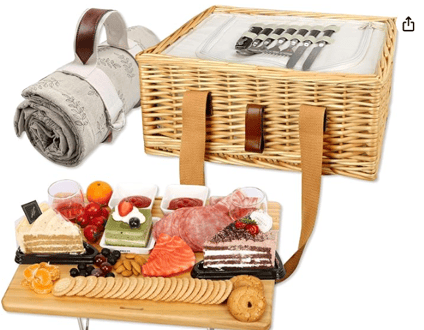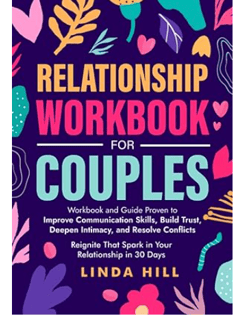10 Proven Tips to Strengthen Your Relationship
Discover 10 proven tips to strengthen your relationship and build a deeper connection with your partner. This post offers practical advice to improve communication, foster emotional intimacy, and keep the spark alive. Whether you’re navigating challenges or simply looking to enhance your bond, these actionable strategies are designed to help couples create a stronger, more loving partnership. Perfect for all relationship stages, this guide is packed with insights and ideas to inspire growth and understanding in your love life."
RELATIONSHIP ADVICE
12/28/202413 min read


Introduction: The Importance of a Strong Relationship
In today's fast-paced world, maintaining a strong and healthy relationship is more critical than ever for couples. A solid partnership fosters an environment where both individuals can thrive, encouraging emotional growth and mutual support. This interdependence plays a significant role in enhancing overall happiness and life satisfaction, making it a crucial component of personal well-being.
Strong relationships serve as a protective factor against various life stresses. When faced with challenges, whether they be personal or external, a resilient partnership can provide the necessary emotional support. Couples who invest time and effort into strengthening their connection often find themselves better equipped to navigate difficulties together. This shared resilience leads to a deeper bond and a sense of security within the relationship, allowing each partner to feel valued and understood.
Moreover, the benefits of a strong relationship extend beyond mere emotional support. Research has shown that couples who maintain a close and nurturing partnership often experience improved mental and physical health. The connection between emotional well-being and physical health is profound; supportive relationships can lead to a healthier lifestyle, lower stress levels, and greater longevity. Consequently, investing in a relationship not only enhances personal happiness but can also contribute to a longer, more fulfilling life.
In conclusion, the significance of a strong relationship cannot be overstated. By prioritizing connection and cultivating a nurturing partnership, couples can unlock numerous benefits that enhance their overall quality of life. Such an investment in emotional closeness and mutual support is essential for navigating life’s ups and downs as a unified team.
Tip 1: Prioritize Open Communication
Open communication is the cornerstone of any successful relationship, serving as the foundation upon which trust and intimacy are built. Effective dialogue allows partners to express their thoughts, feelings, and needs, fostering a deeper understanding of each other. To improve communication in a relationship, it is crucial to adopt practical strategies that promote honesty and empathy.
One of the most effective methods of enhancing communication is through active listening. This involves fully concentrating on what your partner is saying and providing feedback that shows you are engaged. Reflecting back on what has been said and asking clarifying questions can help ensure that both partners feel heard and valued. It is essential to create an environment where both individuals can share openly without the fear of judgment or dismissal.
Furthermore, expressing feelings without placing blame is a crucial strategy. Using 'I' statements rather than 'you' statements can significantly alter the tone of interactions. For instance, instead of saying, "You never listen to me," one might say, "I feel unheard when I try to share my thoughts." This subtle shift in language can reduce defensiveness and lead to more productive conversations.
Common communication pitfalls include interrupting each other, jumping to conclusions, or becoming defensive. To avoid these issues, practice patience and allow your partner to express themselves completely before responding. Maintaining an empathetic approach enables both partners to understand each other's perspectives better, which is essential in resolving conflicts and building a stronger bond.
In conclusion, prioritizing open communication in a relationship can lead to improved connection and understanding. By adopting strategies such as active listening, using 'I' statements, and fostering empathy, partners can navigate difficult conversations more effectively, ultimately enhancing the overall quality of their relationship.
Tip 2: Spend Quality Time Together
Investing time in each other is fundamental in nurturing a healthy relationship. Quality time creates opportunities for partners to engage meaningfully, allowing for open communication and emotional intimacy. To strengthen your bond, it is essential to prioritize activities that both partners enjoy, fostering a shared experience that enhances connection.
Date nights are a classic yet effective approach to rediscovering one another. Whether it is dining at a fancy restaurant or cooking together at home, these moments can reignite romance and provide a break from daily routines. Also, scheduling regular dates, such as a weekly movie night or a monthly adventure, contributes to a sense of togetherness and anticipation.
Shared hobbies can also serve as an excellent platform for enhancing relationship satisfaction. Engaging in activities like hiking, painting, or playing a musical instrument together not only fosters teamwork but also creates lasting memories. These shared experiences contribute to a deeper understanding of one another, allowing for both partners to grow closer as they explore new interests.
In addition to planned activities, establishing daily rituals can have a profound impact on relationship quality. Simple acts such as sharing a morning coffee, taking evening walks, or discussing each other's day can reinforce emotional bonds. Research indicates that couples who engage in frequent, intentional quality time report higher levels of satisfaction in their relationships.
Personal anecdotes often highlight the importance of these moments; for instance, couples who regularly dedicate time to one another frequently exhibit improved communication skills and decreased conflict. As you integrate quality time into your routine, remember that it does not always require lavish outings. Focus on the intention behind your time together, as that truly enhances the connection between partners.
Master Conflict Resolution
Conflict is an inevitable aspect of any relationship. When handled correctly, disagreements can serve as catalysts for growth, deeper understanding, and enhanced resilience. To navigate conflicts constructively, couples must adopt effective conflict resolution strategies that prioritize open communication and shared solutions.
One essential technique for managing conflict effectively is to remain calm during disagreements. Emotions can run high, and when tensions escalate, rational discussion can quickly deteriorate. Couples should practice techniques such as deep breathing or taking a brief pause to collect their thoughts before engaging in dialogue. This approach not only helps in reducing emotional intensity but also fosters a conducive environment for a productive discussion.
Moreover, the focus on solutions rather than problems is crucial. Instead of dissecting past grievances endlessly, partners should seek to identify actionable steps toward resolution. This mentality encourages a proactive approach, allowing couples to view challenges as opportunities for improvement rather than insurmountable obstacles. Engaging in brainstorming sessions to cultivate ideas for reconciliation can solidify the partnership’s commitment to collaborative problem-solving.
Another vital aspect of effective conflict resolution is knowing when to compromise. Relationships thrive on the principle of give-and-take; thus, recognizing when to yield on certain issues can be instrumental in maintaining harmony. Each partner should approach discussions with a willingness to reach a mutually beneficial agreement, acknowledging that flexibility can strengthen the relationship.
Ultimately, mastering conflict resolution equips couples with the tools to transform disagreements into constructive dialogue. By remaining calm, focusing on solutions, and practicing compromise, partners can enhance their relationship, building a strong foundation that thrives on understanding and resilience. These strategies not only reinforce the couple's bond but also contribute to a healthier partnership overall.
Tip 4: Create Shared Goals and Dreams
Establishing shared goals and dreams in a relationship can significantly enhance the emotional bond between partners. When both individuals actively participate in setting common objectives, it fosters a sense of teamwork and partnership. This practice not only helps couples align their values but also encourages open communication about their future aspirations.
One effective way to visualize these shared ambitions is by creating a vision board. This exercise involves gathering images, quotes, and other representations of personal and couple goals, allowing partners to express their desires in a tangible format. By discussing what each item means to them, partners can gain insight into one another's dreams and reinforce their commitment to achieving them together.
Setting couple goals is another valuable method for fostering a deeper connection. These objectives can range from short-term plans, such as embarking on a weekly date night, to long-term dreams, such as buying a home or starting a family. Engaging in this goal-setting process not only strengthens the bond between partners but also instills a shared sense of purpose, as both individuals work collaboratively towards a common vision.
Additionally, regular discussions about future aspirations can yield substantial benefits. Allocating time for these conversations ensures that both partners remain in-sync and encourages them to adapt to changing desires and circumstances. Through active listening and support, couples can navigate challenges together, reinforcing their partnership and commitment to one another.
Numerous anecdotes illustrate the impact of shared goals on relational satisfaction. For example, a couple that dedicated time to outline their dreams experienced improved communication and a renewed sense of togetherness. By emphasizing a collaborative approach, they were able to support each other more effectively, leading to increased happiness and fulfillment in their relationship.
Tip 5: Cultivate Emotional Intimacy
Emotional intimacy is a vital component of any healthy relationship, acting as the foundation upon which trust and understanding are built. It represents a deep connection that allows partners to share their thoughts, feelings, fears, and dreams without the fear of judgment. This type of closeness not only enhances relationship satisfaction but is also linked to increased trust and mutual respect. Research has indicated that couples who prioritize emotional intimacy are more likely to experience lasting happiness and stability in their relationships.
One effective way to cultivate emotional intimacy is through vulnerability. When partners openly express their emotions, they invite each other into their inner worlds. This means sharing not only the good aspects of life but also insecurities and fears. For example, discussing personal challenges or past experiences can foster understanding and empathy, helping both individuals to feel seen and valued. It is essential to create a safe space where such discussions can occur, ensuring that each partner feels comfortable letting their guard down.
Another way to strengthen emotional intimacy is by sharing dreams and aspirations. Engaging in conversations about future goals fosters a sense of partnership and collaboration. Whether it's planning a joint vacation, discussing career ambitions, or outlining family goals, these shared visions encourage bonding and reinforce commitment. Additionally, taking time to truly get to know each other on a deeper level, such as engaging in meaningful conversations or participating in collaborative activities, strengthens the emotional bond.
Ultimately, cultivating emotional intimacy requires investment and effort from both partners. By prioritizing open communication, vulnerability, and shared dreams, couples can deepen their emotional connections, leading to a more fulfilling relationship.
Tip 6: Show Appreciation and Gratitude
In any committed relationship, the power of appreciation and gratitude cannot be overstated. Recognizing the efforts and qualities of your partner fosters a deeper connection and enhances overall relationship satisfaction. Simple acts of acknowledgment can significantly influence the dynamics of a partnership, especially during challenging times when negativity may threaten to overshadow positivity.
Expressing gratitude can take many forms, and incorporating these practices into daily life can lead to lasting benefits. For instance, complimenting your partner regularly, whether it’s about their appearance, skills, or personality traits, can reinforce their sense of value within the relationship. Additionally, writing heartfelt notes or leaving small tokens of appreciation can serve as constant reminders of your affection. Verbal affirmations, such as saying “thank you” for even the smallest acts, profoundly impacts how partners perceive and respond to each other.
Research has shown that couples who engage in gratitude exercises report higher levels of relationship satisfaction. One study found that partners who expressed appreciation not only felt happier but also experienced a stronger bond. This sense of appreciation can be particularly crucial during tough periods; it provides a necessary shift in perspective, helping individuals focus on the positive aspects of their partner or the relationship rather than dwelling on negative experiences or challenges. By fostering a culture of gratitude, couples can create a supportive environment that nurtures resilience and intimacy.
Ultimately, integrating appreciation and gratitude into your relationship is a powerful strategy that can promote emotional closeness and stability. By consistently recognizing and valuing one another, couples can strengthen their commitment and navigate through life’s ups and downs more effectively.
Tip 7: Maintain Individual Identities
In any successful relationship, it is essential to maintain individual identities. This concept emphasizes the importance of personal space and the pursuit of individual interests alongside shared experiences. Couples who prioritize their uniqueness not only enhance their connection but also foster a healthier dynamic that respects and nurtures individuality. By embracing different passions, partners can cultivate a more profound understanding of one another and, in turn, contribute positively to their relationship.
The benefits of personal space within a relationship cannot be overstated. Engaging in activities separately allows partners to decompress and recharge, ultimately bringing a refreshed energy back into the relationship. Personal growth may involve pursuing hobbies, socializing with friends, or dedicating time to self-improvement. For instance, one partner may find joy in painting while the other enjoys rock climbing. The ability to engage in separate interests encourages mutual respect and admiration, reinforcing the notion that individual happiness contributes to the overall relationship satisfaction.
Supporting one another’s individual growth is crucial for a thriving partnership. Couples should take the initiative to celebrate each other's achievements, whether big or small. If one partner receives a promotion at work while the other completes a marathon, both accomplishments should be viewed as victories that enhance the shared life they are building together. By recognizing and validating these individual milestones, couples fortify their bond while also demonstrating that they value each other as unique individuals.
A strong relationship, therefore, allows both connection and independence to coexist. Effective communication plays a significant role in achieving this balance, as partners must express their needs and desires openly. Ultimately, strengthening a relationship while maintaining individual identities leads to a more fulfilling partnership rooted in respect, admiration, and love.
Tip 8: Practice Forgiveness and Letting Go
Forgiveness is often cited as a cornerstone of healthy relationships. When couples encounter conflicts, it is not uncommon for one or both partners to hold onto grievances, which can create a toxic atmosphere. Research has shown that harboring grudges can lead to increased stress, decreased satisfaction, and may even impede emotional intimacy. This section explores the importance of practicing forgiveness and offers strategies to let go of past transgressions.
One prominent study published in the Journal of Personality and Social Psychology highlighted that individuals who forgive experience improved psychological well-being and greater relationship satisfaction. The act of forgiving allows individuals to release the emotional weight of past grievances, which fosters emotional healing and strengthens the bond between partners. Therefore, understanding the necessity of forgiveness is essential for couples seeking to navigate conflicts effectively.
To practice forgiveness, it is vital to first acknowledge the hurt caused by a partner's actions. Open and honest communication about feelings can facilitate understanding and empathy. For instance, if one partner feels neglected, discussing these feelings can help the other partner gain perspective and express remorse, paving the way for reconciliation.
Another effective strategy is to reframe the situation. Instead of viewing the incident as a betrayal, consider it an opportunity for growth. By examining past grievances from a different angle, partners may recognize that mistakes are often part of the human experience—and forgiving them can foster personal and relational growth. Journaling about these experiences can also help clarify feelings and promote emotional release.
In conclusion, embracing the practice of forgiveness and letting go of past grievances is vital for nurturing a supportive and loving relationship. By prioritizing this process, couples can move past conflicts, enhancing their emotional connection and overall partnership.
Tip 9: Engage in Healthy Physical Touch
Physical touch plays a pivotal role in fostering emotional bonds within a relationship. Engaging in healthy physical affection has been shown to significantly enhance the sense of connection between partners. Simple gestures such as hugging, holding hands, or cuddling can reinforce feelings of safety and intimacy, creating a stronger emotional foundation for the relationship. These forms of affectionate touch contribute to a nurturing environment, where both partners feel valued and supported.
Numerous studies highlight the psychological benefits of physical intimacy, revealing that touch can trigger the release of oxytocin, often referred to as the "love hormone." Oxytocin is associated with feelings of happiness and contentment, which can reduce stress levels and promote positivity within the relationship. When partners engage in regular physical touch, they may experience lower levels of anxiety, improved mood, and an overall sense of well-being. This is particularly crucial in times of stress, where physical affection can serve as a comforting reminder of support and connection.
In addition to its emotional benefits, healthy physical touching can serve as a form of non-verbal communication, conveying care and affection in ways words sometimes cannot. The frequency and quality of physical touch can act as a barometer for relationship satisfaction. Couples who prioritize physical affection often report feeling more connected and satisfied in their relationship. Therefore, incorporating regular acts of physical intimacy can be an essential component of a strong, resilient partnership. Practicing various forms of healthy touch can enhance the richness of the relationship and deepen the emotional ties between partners over time.
Tip 10: Seek Professional Help When Needed
In the journey of a relationship, couples may encounter challenges that feel overwhelming and difficult to navigate. It is crucial to recognize when the situation calls for external support, making therapy or professional counseling a valuable option. Seeking help does not signify failure; rather, it demonstrates a commitment to strengthening your relationship and enhancing communication. Couples therapy has proven effective in addressing various issues, including communication breakdowns, trust concerns, and emotional disconnection.
One common stigma surrounding professional help is the misconception that therapy is only for those in dire situations. In reality, many couples find therapy beneficial even during stable periods. Engaging with a skilled therapist can provide new perspectives, facilitate constructive discussions, and equip partners with tools to manage conflicts. Workshops and group counseling also offer enriching experiences where couples learn from others facing similar challenges, fostering a sense of community and understanding.
Success stories abound where couples have turned their troubled relationships around through professional intervention. For instance, a couple at a crossroads in their communication dynamics found renewed compassion and connection after engaging in structured therapy sessions. The process helped them articulate their feelings and understand each other's needs, ultimately transforming their relationship into a more fulfilling partnership.
When considering professional help, it is important to approach the subject openly and assure your partner of your supportive intentions. Discuss any concerns or reservations openly, and emphasize that seeking help is a proactive step towards healing and growth. By recognizing the value of professional support and approaching it as an opportunity for strengthening your bond, couples can transform their challenges into pathways for deeper connection and understanding.
Connect
Explore relationship tips and essential product recommendations.
Support
Shop
contact@driplove.com
+1234567890
© 2024. All rights reserved.
Other Links










